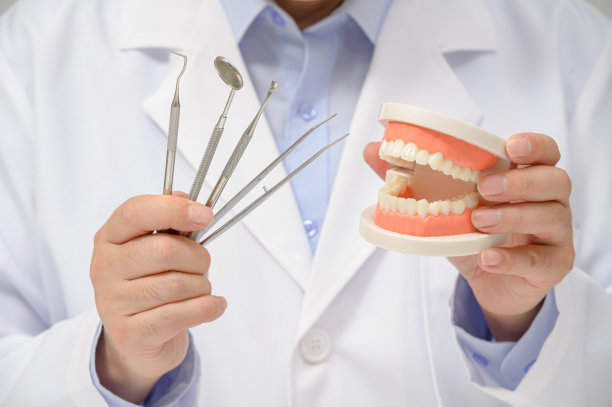Summary: Dental fillings are a common procedure aimed at restoring the integrity of a tooth that has been affected by decay or damage. However, ensuring optimal oral health before and after getting a dental filling is crucial to its success. This article outlines essential guidelines in four key areas: preparation for the visit, immediate post-treatment care, maintenance of your oral health, and follow-up visits. By adhering to these recommendations, patients can improve their comfort during the procedure and enhance the longevity of their fillings, resulting in better overall dental health.
1. Preparing for Your Dental Filling Appointment

Before you head to the dentist for a filling, preparation is key. Begin with a thorough discussion with your dentist about your specific needs and concerns. Be sure to mention any allergies or sensitivities, as well as your medical history. Understanding the procedure and knowing what to expect can significantly ease anxiety.
Additionally, it’s wise to take care of any immediate dental issues prior to your appointment. For example, if you’re experiencing pain or discomfort, inform your dentist so they can address it before proceeding with the filling. Arriving with a good understanding of what’s to come will set you up for a smoother experience.
Lastly, you might want to consider arranging for someone to drive you home, especially if you will be receiving sedation. Comfort and safety should be prioritized, allowing you to recover without additional stress.
2. Immediate Aftercare Following Your Filling
Once your dental appointment is complete, immediate aftercare is crucial to your recovery process. The anesthesia used during your filling might linger, making it difficult to feel your mouth, although this is temporary. It’s important to avoid eating or drinking until the numbness wears off to prevent biting your cheek or tongue accidentally.
In addition to managing your diet, pay attention to any sensitivity in the filled tooth. It’s common to experience some sensitivity to temperature or pressure immediately after the procedure. If this discomfort persists beyond a few days, don’t hesitate to contact your dentist for advice on managing it effectively.
Keeping your mouth clean is very important. You should resume your regular oral hygiene routine, but be gentle around the filling site. Use a soft-bristled toothbrush and avoid toothpaste that is too abrasive for a few days to aid in the healing process without aggravating the area.
3. Maintaining Long-Term Oral Health
Once the immediate aftercare has been catered to, the focus should shift to long-term oral health maintenance. Regular dental check-ups should be an integral part of your routine. Visiting your dentist regularly allows for the detection of any issues with your fillings and ensures that overall oral health is maintained.
A well-balanced diet can also significantly impact the longevity of your fillings. Limit your intake of sugary foods and beverages, which can lead to further decay. Incorporating calcium-rich foods can help strengthen your teeth, providing essential nutrients that bolster oral health.
Additionally, proper oral hygiene habits are paramount. Brush your teeth at least twice daily and floss once a day to reduce plaque buildup, thereby protecting both your fillings and the surrounding teeth. Consider using mouthwash with fluoride to strengthen your enamel even further.
4. Understanding the Importance of Follow-Up Visits
Many patients underestimate the importance of follow-up visits after receiving a dental filling. These appointments provide a crucial opportunity to assess the filling’s condition and ensure there are no underlying issues that need to be addressed. It’s essential to discuss any discomfort or changes in sensitivity during these visits to allow your dentist to intervene early.
Follow-up visits also allow you to address your oral health goals. Your dentist can provide personalized recommendations tailored to your dental history, and help you make informed decisions about additional treatments if necessary.
Finally, these visits are an opportunity to build a stronger relationship with your dentist. Having open conversations about your oral health can lead to better overall care and increased comfort during future visits, ensuring your dental journey is a positive one.
Summary:
Preparation, immediate aftercare, maintenance of oral health, and timely follow-up visits are essential guidelines for ensuring a smooth experience with dental fillings. By following these practices, patients can not only enhance the effectiveness of their fillings but also contribute to their overall dental health.
This article is compiled by Vickong Dental and the content is for reference only.
Vickong Dental
Vickong Dental is a large medical group established in Hong Kong in 2008 by professors from well-known medical universities in Guangdong and Hong Kong, as well as medical doctors from key national '985' universities (including Master's supervisors and senior professors). The chain of branches brings together expert dentists with PhDs and Master's degrees from Hong Kong and Mainland China, committed to providing high-quality dental treatment.
"Vickong Dental Practices the University Motto of 'Healing and Serving Society,' with a Stable Operation for Sixteen Years. It Has Been honored with Hong Kong Enterprise Leaders's Choice,' and is a Global Trusted Implant Center for the Nobel Implant System. Recommended by Hong Kong Metro Broadcast and Guangdong Television, it Serves Customers from Over Thirty Countries and Regions, Gaining the Trust and Favor of Citizens from the Guangdong-Hong Kong-Macau Greater Bay Area and Surrounding Cities.

Thousands of customers' unanimous praise
The most recognized and highly recommended dental service by customers in the Guangdong-Hong Kong-Macau Greater Bay Area
We Ensure You Receive Detailed Care and Attention Here
Hong Kong standards, Shenzhen prices, Your Trusted English-speaking dentists

Vickong Dental Medical-Grade Instrument Disinfection Process
Vickong Dental Medical-Grade Instrument Disinfection Process

Vickong Dental Chain: A Warm and Comfortable Environment for Treatment






Appointment Hours

Q&A
Why choose Vickong Dental?
Vickong Dental practices the university motto 「Medicine to Benefit Society」, with each branch bringing together highly qualified dentists with doctoral and master’s degrees from Hong Kong and the Mainland, and has maintained seventeen years of steady operation。Recipient of 「2024 Hong Kong Enterprise Leaders Brand」, 「2025 Hong Kong Enterprise Leaders Brand」, a Nobel Biocare Global Trusted Implant Center, and a brand recommended by Metro Radio Hong Kong and Guangdong TV。
To date, we have served customers from more than thirty countries and regions,earning exceptionally high word-of-mouth recognition and trusted recommendations from residents across the Guangdong-Hong Kong-Macao Greater Bay Area and surrounding cities
We have eight major branches in Zhuhai、Shenzhen,and a consultation and service assurance center in Hong Kong,so you can book a free consultation at any time for any questions,which is very reassuring.
If I do not accept the quotation after the CT scan, will I be charged??
No! As long as the actual treatment has not started, you will not be charged any fees.
Will there be any additional charges during the treatment process?
No, there won’t be any additional charges. Before treatment begins, we will clearly explain the treatment plan and its corresponding fees. Only after the patient agrees and signs the consent form will we proceed with the dental service.
Can I pay in Hong Kong dollars?
Yes. Vickong Dental accepts payment in Hong Kong dollars. The amount will be converted based on the exchange rate of the day, and the applicable rate will be clearly communicated to you in advance.
Can I reschedule my appointment at any time?
Yes. Please contact us via **WeChat** or **WhatsApp** as early as possible, providing your original appointment time and details, along with your preferred new date and time slot for rescheduling.













